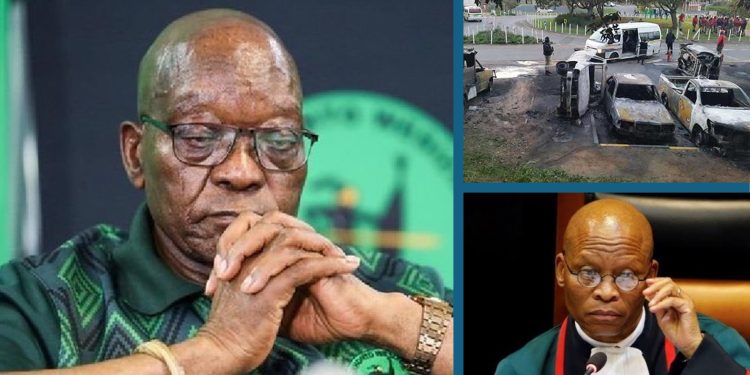Former President Jacob Zuma’s controversial handling of the #FeesMustFall protests has resurfaced, following a startling revelation by retired Chief Justice Mogoeng Mogoeng. In a recent statement, Mogoeng disclosed that Zuma had vowed to “make an example” of students who participated in the nationwide protests demanding free education in South Africa.
The claim has reignited public debate over Zuma’s leadership during the 2015-2016 #FeesMustFall movement, a pivotal period in South African student activism. The protests, which saw students mobilizing across university campuses to demand the elimination of tuition fees, were met with violent crackdowns and widespread arrests. According to Mogoeng, Zuma’s stance was unyielding, aimed at using the protests as a political tool to deter future dissent.
The #FeesMustFall movement became a defining moment in the fight for equitable access to higher education, shining a spotlight on the financial barriers many South African students face. However, Mogoeng’s recent revelation suggests that the former president viewed the protests not as a call for justice but as a threat to his administration’s authority. Zuma’s alleged strategy to “punish” student leaders, Mogoeng claims, was intended to send a strong message to both the public and the political opposition.
The Economic Freedom Fighters (EFF) swiftly condemned Zuma following Mogoeng’s statement. Known for their consistent advocacy of free education, the EFF accused Zuma of leveraging his power to crush legitimate student-led movements.
“This is yet another example of Jacob Zuma’s ruthless approach to governance,” said an EFF spokesperson. “Instead of engaging with young South Africans fighting for their future, he chose to use them as political scapegoats.”
Mogoeng’s remarks have added to the mounting criticism of Zuma’s leadership style, particularly his approach to dissent and protest. His handling of the #FeesMustFall movement remains a contentious chapter in South Africa’s post-apartheid history, sparking calls for accountability and justice for those affected by state violence during the protests.
As the nation reflects on this chapter, many are demanding reparations for the students who faced brutality and imprisonment. Zuma’s legacy continues to divide public opinion, and these latest revelations are likely to fuel further debate about the political decisions made during his presidency.






















